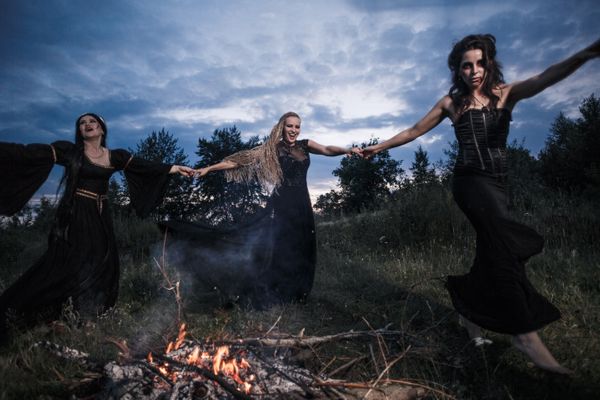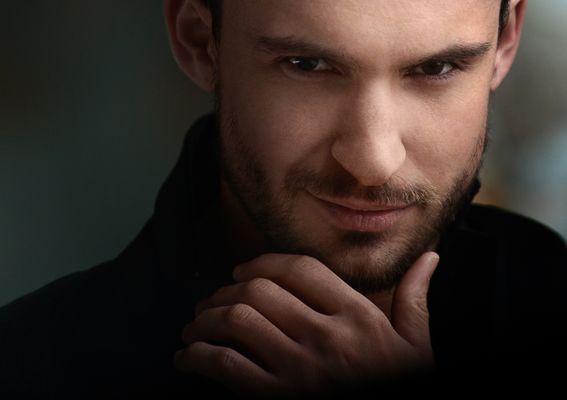Banquo
Banquo distrusts the witches and doesn't try to tempt fate.

- After hearing the witches' prophecies in Act 1, Scene 3, Banquo doesn’t know whether they should trust the witches or not.
- He fears that they may have made the prophecies (predictions) to hurt Macbeth: ‘Oftentimes, to win us to our harm, / The instruments of darkness tell us truths’ (1,3).
- As someone who distrusts and fears the witches throughout the whole play, Banquo is shown to be a good, God-fearing character in the play.
- Jacobean audiences feared the supernatural, and Banquo echoes this fear. He does not allow them to manipulate him and does not show a lot of interest in the prophecies.

Doesn't challenge fate
- Although Banquo hopes that the witches’ prophecies (predictions) will come true for him - ‘May they not be my oracles as well / And set me up in hope?’ (3,1) - he does not show any desire to force them.
- He does not really engage in the supernatural.
In Act 3, Scene 4 Banquo’s ghost appears to Macbeth. We don’t know whether this is real or something Macbeth imagines. The ghost appears in the seat where Macbeth should be sitting.

- From Macbeth’s words, we can work out that the ghost is shaking his head at Macbeth: ‘Thou canst not say I did it; never shake / Thy gory locks at me!’
- The ghost seems to be accusing him.
- We could suggest that Banquo’s ghost shakes his head at Macbeth because he knows that Macbeth will not secure his position as king by murdering him.

- After being friends with Banquo, and holding his trust for a long time, Banquo's murder seems to be the death that affects Macbeth the most.
- Banquo almost acts as Macbeth’s conscience – Macbeth arguably feels the most guilt for betraying his friend and murdering him, just to make sure that he has power.
Macbeth and Banquo's Friendship
Banquo is Macbeth's close friend and ally at the start. But by Act 2, Macbeth and Banquo’s friendship is already questionable. They begin to have opposing views about the witches, and Macbeth shows a willingness to lie to Banquo with very little thought.

- Banquo tells Macbeth that he has dreamed about the witches. Macbeth says he has given them no thought.
- This shows he is now lying to his friend. Macbeth tells him they will speak about it at a later time. (2,1)

- After Macbeth has been crowned king, Banquo suspects that he has gained the title through doing something bad.
- This suggests that he suspects him of murdering King Duncan: ‘Thou hast it now, King, Cawdor, Glamis, all, / As the weird women promis’d, and I fear / Thou played’st most foully for’t’ (3,1).

Macbeth's false appearance
- Macbeth gives Banquo lots of praise. He welcomes him as ‘chief guest’ to the celebrations (3,1).
- Macbeth is putting on a false appearance. He actually plans to have Banquo murdered.
- Although Banquo suspects that Macbeth has done something bad in order to gain the throne, he still seems to trust his friend. He does not seem to suspect that his own life is at stake.

Fear and murder
- Macbeth wishes Banquo a good ride (3,1). Then, after the guests have left him, meets the murderers to plan his murder.
- Macbeth fears Banquo. He says that Banquo is a good and clever man. This suggests he will see him as a real threat to his crown later on.
- He says Banquo has, 'royalty of nature' and 'wisdom' (3,1). He doesn’t want Banquo’s sons to benefit from his crimes (by becoming kings).
- The murderers attack Banquo in the woods. A third man arrives to do the same job – Macbeth must be making sure that Banquo will definitely die.
- They attack him and kill him, but Fleance (his son) manages to escape.
1 Literary & Cultural Context









